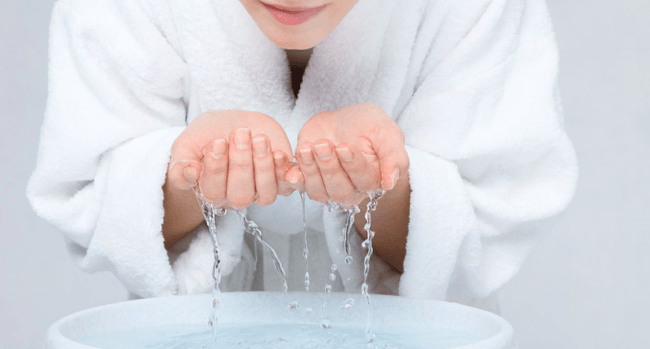
Perhaps your skin has seen some better days. Due to various factors, your skin will change throughout your life. Many have their good days and their bad days. Fortunately, there are a few things you can do to help skin remain clear and youthful. Below are just a few ways you can achieve clearer skin.
- Stop Using Harsh Exfoliates
If you are like most people, harsh exfoliates are ruining your skin. Facial skin is much more sensitive than skin on the rest of the body, and therefore it is more susceptible to irritation. While some people need a little extra help with the removal of built-up skin cells, it is too easy to over-exfoliate and cause irritation. For many, exfoliation causes the skin to dry out, which will stimulate excess oil production. Dermatologists recommend that you only gently splash water on your face and wipe softly as part of your morning and night routine.

- Start Using Day and Night Creams
When it comes to clear skin, hydration is key. Not only should you take in the recommended 2.7 liters of water a day, but you also need help retaining that moisture. However, everyone can wear a night and day mask to keep skin hydrated. Generally, the best creams to use are water-based creams. Oil-based creams can clog the pores of those with combination or oily skin. For day creams, look for brands that contain SPF to keep skin from becoming damaged and dried out.
- Wash Your Sheets
When was the last time you washed your sheets? Most people do not wash their sheets as much as they should. Some people wait several months or longer, while others wash their sheets once a month. Health professionals recommend that you wash your sheets once a week. The general idea is that you should treat your sheets like you treat your clothes. If you spend eight hours a night sleeping in bed, that’s about 56 hours a week—more than most people spend in their office at work. During that time, your sheets collect your body oils, sweat, dirt, grime, and dead skin cells. This will gather on your pillow cases as well, and this constant contact can infect your pores.
- Eat Your Leafy Greens
You have heard over and over again how good vegetables are for your body, but the effect of fresh produce on your health can be profound. Leafy greens and other vegetables provide essential vitamins and minerals that help support and maintain your body’s function. As for your skin, vitamins and minerals help fight antioxidants, keep skin hydrated, support collagen production, and keep skin glowing and youthful. While the skin boosting benefits of some nutrients have been debated, such as the link between Vitamin A and acne, there is no doubt that in healthy amounts, all vitamins and minerals will help support the vitality of your skin.
- Don’t Forget Protein
Whether you prefer red meat, fish, poultry, or vegetarian options like nuts, protein is a critical part of skin health. Grass-fed red meat, for example, lacks the chemicals found in regular red meat varieties, and pack a punch of protein, zinc, and the amino acids glycine and proline. The combination of these ingredients is essential to collagen production as well as reducing inflammations. If you are a vegetarian, you can find high concentrations of zinc in lentils and kidney beans.
- Cover Up with Sunscreen
Dermatologists could not emphasize this more—overexposure to sun can have devastating effects on your skin and overall health. Wear an SPF of at least 15 to block out much of the UVB radiation coming from the sun. Many liquid foundations now have an SPF in them, however you can find others that are designed for your specific skin type and won’t interfere with makeup.
Be sure you follow these six habits and make sure your skin has all it needs to look and feel its best.
